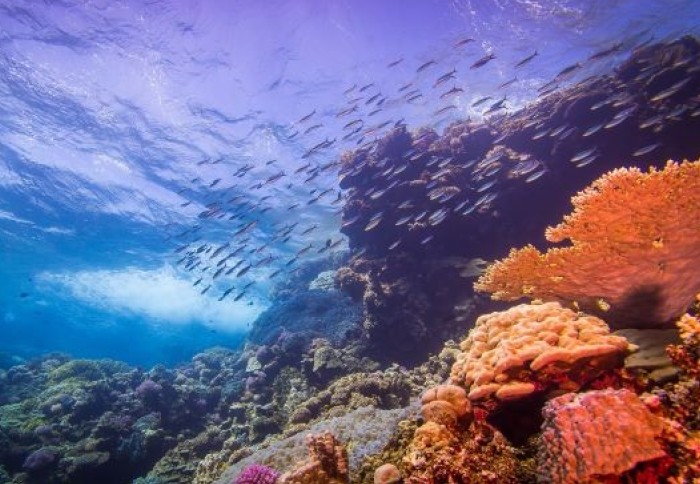Biodiversity – and how your life depends on it

Dzulkeflee Khairuddin via dzulkeflee.com
Animal and plant species are disappearing at alarming rates. Imperial scientists discuss what’s needed to tackle this global challenge.
More than a million species are believed to be on the verge of extinction, with an average 60% decline in animal populations since 1970, according to a feature published today by Imperial College London. The article provides insights from four Imperial scientists who reflect on the scale of the ecological crisis, why it matters so much for humanity and what needs to be done to address the decline in biodiversity.
Written by Miriam Frankel, science editor at The Conversation, the in-depth feature cites some shocking facts and statistics on biodiversity loss. These include:
- The Red List of species threatened with extinction published by the International Union for Conservation of Nature (IUCN) estimates that 28% of species are threatened with extinction – including 40% of amphibians, 26% of mammals and 33% of corals;
- The current rate of biodiversity loss is 1,000 times higher than the historical rate, with extinctions caused by human activity including the destruction of wild habitats to create farmland, pollution, climate change and unsustainable hunting and fishing practices;
- A recent study suggesting that while many animals are dying out, species like rats and bats, which are more likely to host potentially threatening viruses to humans;
- There is an inextricable link between biodiversity loss and climate change as oceans, plants and healthy ecosystems store carbon and other pollution as well as helping to mitigate the effects of climate change and provide clean air.
Dr Will Pearse, a senior lecturer in the Department of Life Sciences at Imperial, explains that when species and ecosystems are lost, the benefits they provide also vanish. "We are at the beginning of a mass extinction event," he says. "What we're in danger of losing is not just the species themselves, but also the services that they provide us."
Meanwhile, Dr Bonnie Waring, a senior lecturer at the Grantham Institute - Climate Change and Environment, Imperial College London, says: "The human race inherited the planet at the most diverse it's ever been… There is a moral and ethical perspective from which we should respect the rights of those species, with which we share the planet, to exist."
Speaking-up for nature
2021 is an important year for nature as governments from across the world are due to meet in China in October for the 15th United Nations Biodiversity Conference. The key aim of this conference is to establish new goals to improve nature over the next decade through the Convention on Biological Diversity framework. These goals, and their enforcement, will be key to halting and reversing the worrying trends of biodiversity loss across the world.
In recognition of this important year for nature, the Grantham Institute are running a series of activities during 2021 to raise awareness of why we should all care more about our natural environment. These include:
- Seasonal virtual nature walks with research postgraduate Ben Chapple. These are being published on the Grantham YouTube channel. You can already enjoy this winter walk, while the spring walk will be available from May 10, fitting in with the nature theme for Mental Health Awareness Week;
- Research postgraduate Joss Lyons-White and Dr Rikki Gumbs have published blogs about reducing deforestation in tropical forests and why it is crucial to take action to tackle the biodiversity crisis this decade. Another forthcoming blog will examine how traditional Indigenous knowledge is being used to guide decisions;
- An Imperial Lates event on unloved animals from vultures and snakes to ants and toads, taking place on Monday 26 April and Friday 30 April with five scientists trying to convince you why their chosen unpopular animal deserves affection. Award-winning poet Dr Robin Lamboll will recite a poem that unites these creatures under one lyric umbrella: "Will you carrion past the vulture, slither past the snake and be taken by the bees-knees?"
- A webinar on the ecological crisis exploring the causes and consequences of the decline in biodiversity and the actions required to preserve the ecological integrity of our planet.
What you can do
Miriam Frankel concludes her article explaining that most scientists agree that a mix of government and individual action is needed to protect biodiversity. Actions that most people can take themselves include:
- consuming less meat, more fish that are lower in the food chain and more locally sourced food;
- allowing space for nature in our gardens and communal spaces by allowing areas to grow wild;
- lobbying our elected representatives to call on them to implement policies to protect nature and ensure that such policies are adequately enforced.
You can follow the Grantham Institute on Twitter or sign-up to the weekly newsletter to keep up to date on all the latest climate change news and events from Imperial College London.
You can also get in touch with Dr Neil Jennings, Partnership Development Manager at the Grantham Institute – Climate Change and the Environment, to discuss these issues and make suggestions for future activities about nature and biodiversity.
Article supporters
Article text (excluding photos or graphics) © Imperial College London.
Photos and graphics subject to third party copyright used with permission or © Imperial College London.
Reporter
Linsey Wynton
The Grantham Institute for Climate Change